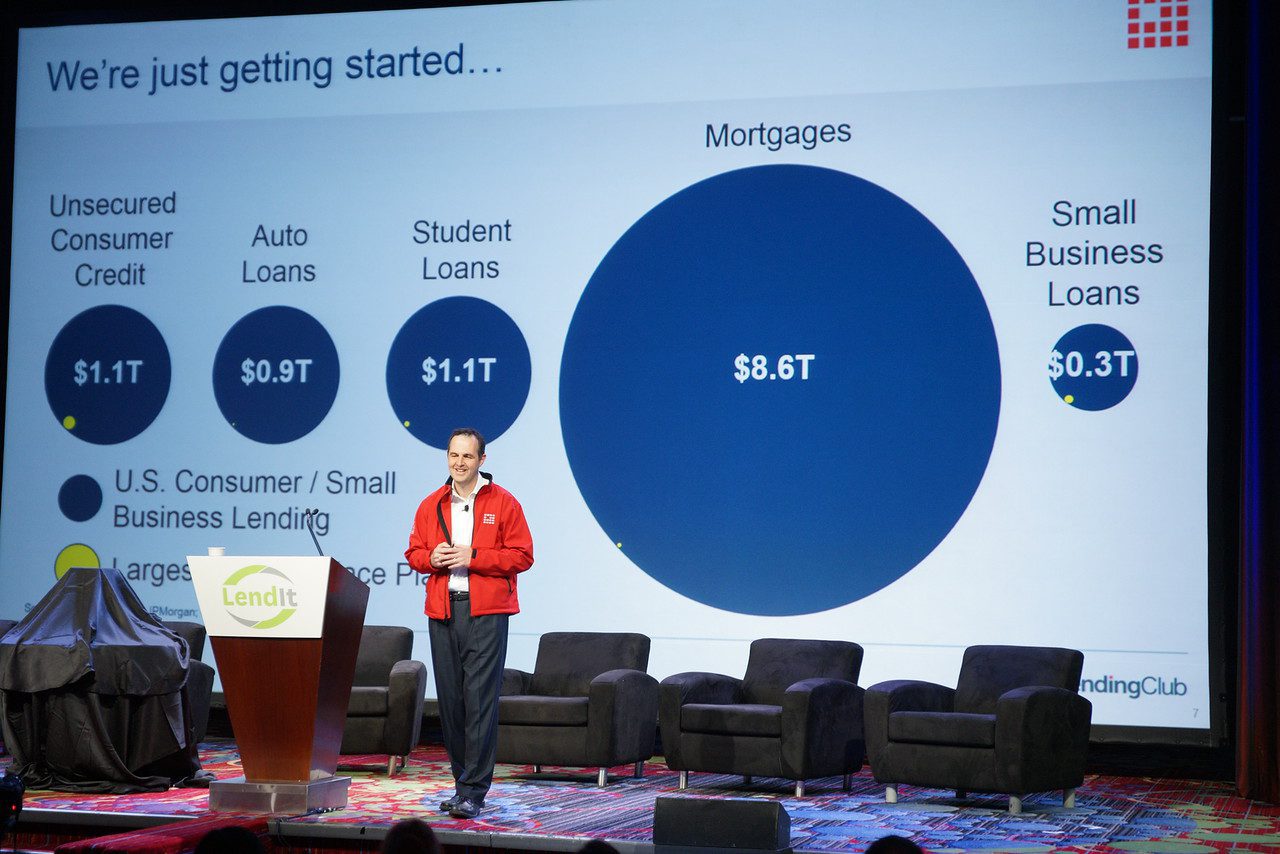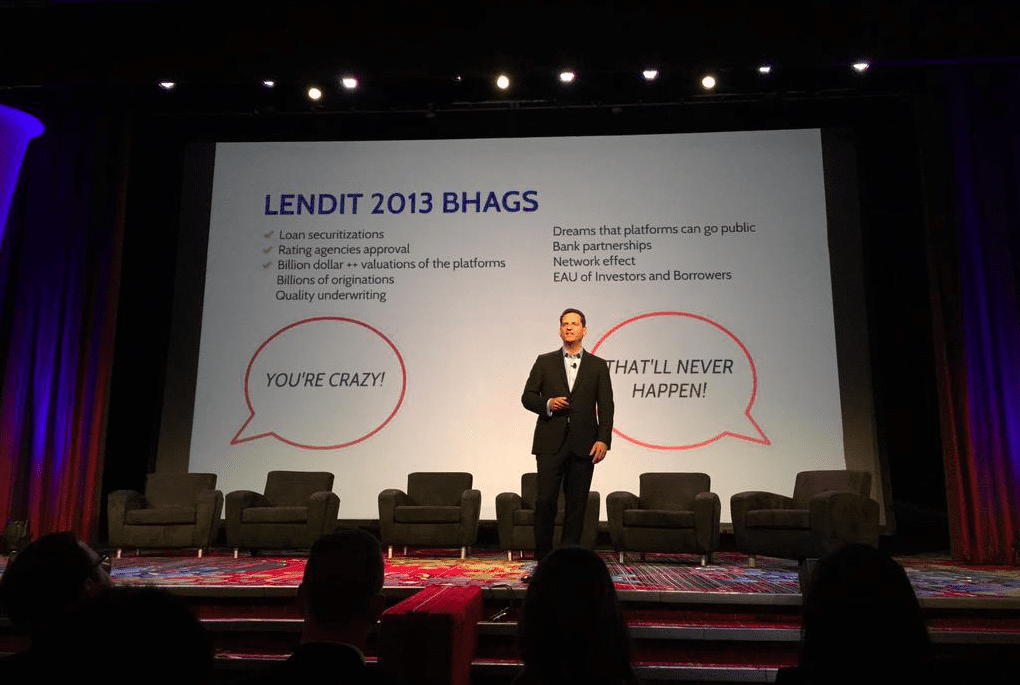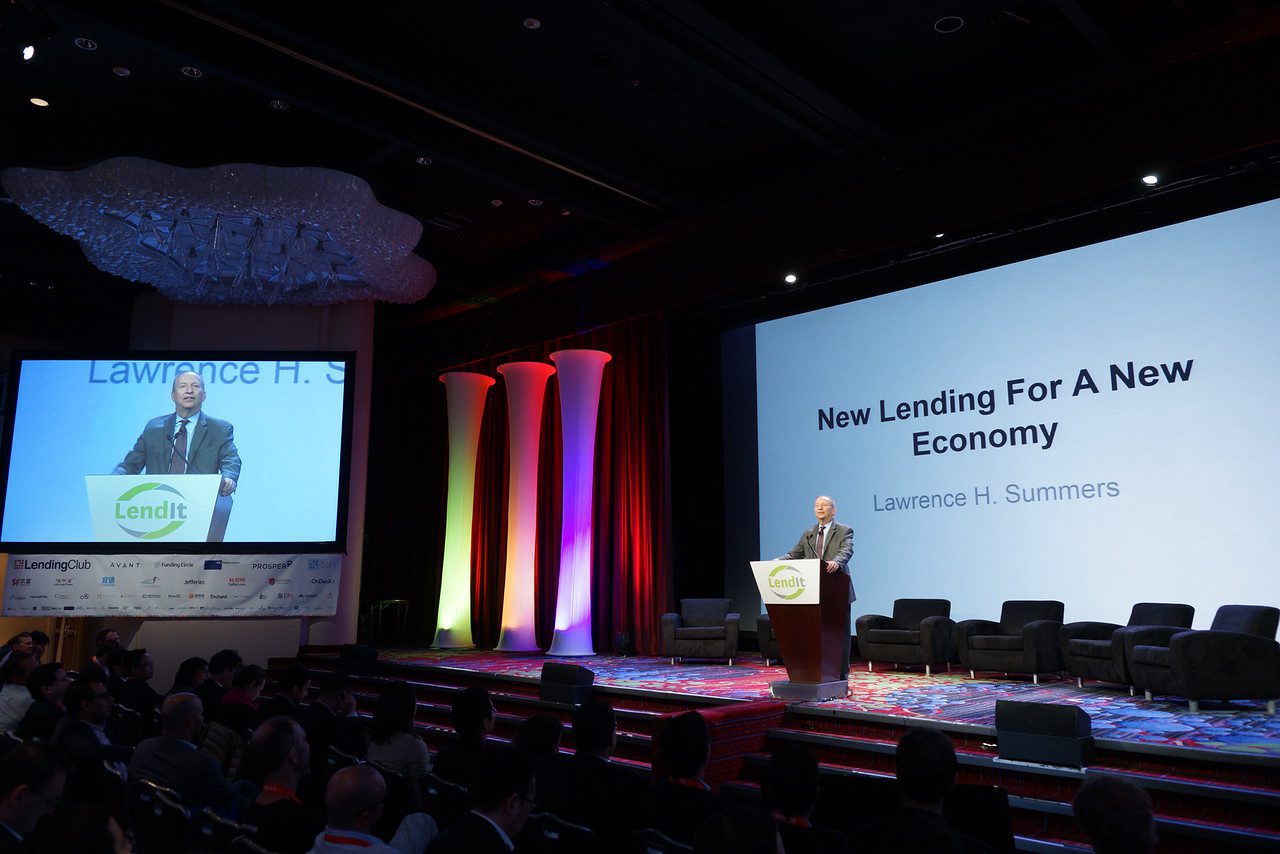
What a week. I have been in New York putting on the latest edition of LendIt, the online lending conference that I co-founded just a couple of years ago.
We had our first LendIt USA conference in New York in June 2013 with just over 350 people; in San Francisco last year we had almost 1,000 people so this year we were expecting around 1,500 people although we secretly hoping for 2,000 people.
LendIt USA 2015 Was Sold Out
We had almost 1,000 people register in the two weeks leading up to the conference and so we made the difficult decision to close down registration on Friday, three days before the conference began. The final count for attendees was 2,493 people, a 159% increase over last year. As Scott Sanborn, the COO of Lending Club, pointed out at the opening reception that was a faster growth rate than his company. And we had to turn away over 150 people who tried to register last minute.
The Pre-Conference
We kicked off LendIt USA 2015 a half-day earlier than usual with some pre-conference workshops. We had four tracks:
- Credit Boot Camp for Alternative Lending Presented by FICO
- P2P Lending 101
- The Online Lending Technology Ecosystem
- Building an Online Lending Platform
Like the rest of the conference we had more people attend these workshops than expected so it was a little crowded, particularly at the FICO workshop. I gave the first presentation on the P2P Lending 101 track, which was just an intro to the industry. Executives from Lending Club had the stage for the rest of the P2P Lending 101 track and judging by the questions there were a lot of newbies in the room – exactly what we had hoped. I heard great reports from the other tracks and I would have loved to attend all of them but I spent most of my time in the P2P Lending 101 track.
That evening we had the pre-conference cocktail party, sponsored by Lending Club, where several hundred of us gathered for drinks and hors d’oeuvres overlooking Times Square.
Some of the Highlights
While it would require a full book to cover all the highlights of LendIt what I will do below is give you some of the highlights.
Renaud Laplanche Keynote
As he has done in the previous two LendIt conferences, the CEO of Lending Club officially kicked off the conference with the opening keynote on Tuesday morning. He asked the question: Is Banking an Engineering Problem? He then proceeded to answer this question in the affirmative. Lending Club is hiring 30% more engineers than operations people as he believes banking can be vastly improved with better technology and better processes.
Renaud also introduced Lending Club’s first hardware product – the Lending Club Cube. This was a concept product that they are developing for point of sale and while the Cube may never see the light of day it demonstrated that Lending Club is thinking hard about point of sale – something that I think is a huge opportunity for them in the longer term.
Every year Renaud makes a big announcement at LendIt and this year was no different. He talked about the importance of partnerships and then went on to introduce their newest partnership with one of the top three banks in the country: Citi. The partnership, worth up to $150 million, will be focused on underserved communities for low- and moderate-income borrowers.
The Hot Button Issues in Online Lending Panel
This was an idea conceived by Nigel Morris, the co-founder of Capital One and the managing partner of QED Investors, at LendIt Europe. He suggested he could moderate a small panel with some of the leading minds in the business discussing the important issues of the day. This panel was my favorite of the entire conference – it featured, along with Nigel Morris, Mike Cagney – CEO of SoFi, Hans Morris – former President of Visa and current Lending Club board member and Bobby Mehta – former CEO of TransUnion and angel investor in this industry.
This panel was so intriguing to me because it included four of the smartest minds in our industry. They didn’t disappoint, with several fascinating discussion topics:
- Banks will not build a platform. Creating software at a bank takes 2-3 years; you can’t do that when the market is changing so rapidly.
- No one is going into uncharted territory in this industry. This asset class has been around for decades.
- The thing that is less clear: what happens in a liquidity crisis when large investors all rush to the exits.
- It is very important that we don’t relax lending standards, even if investors demand it.
- Prediction: in the next 12-18 months some platform will get in trouble because it has originated a bunch of bad loans due to fraud.
Closing Keynote – Ron Suber of Prosper
For the third year in a row Ron Suber, the president of Prosper, gave the closing address on day one of LendIt. His presentation was inspirational and hopeful, while at the same time delivering a sobering message. It was impeccably delivered with the most stunning graphics of any presentation at LendIt. One of the attendees said to me afterwards that it reminded him of a Steve Jobs presentation.
Ron discussed the three legs of the stool that every successful platform has in place: Product, Capital and Operations (what he called “Under the Hood”). He talked about some the challenges for our industry: the fact that no one has a national brand yet, that there will inevitably be platforms that fail, that interest rates will change one day and that there will also be an economic downturn. He also talked about how we can overcome these challenges.
He reviewed the goals that he laid out during his keynote in 2013 and showed how, as an industry, we had achieved or made progress on every one of these goals. He laid out some new goals for the industry such as AA-rated securitizations, creating a publicly traded investment vehicle, $20 billion a year in originations and mainstream adoption. Finally, he also pointed out the five keys to mainstream acceptance of marketplace lending: superior product, transparency, speed, fairness and a better customer experience. If we execute on all these things then the industry will experience escape velocity.
You can see Ron’s entire presentation here (it was done in Prezi).
Noah Breslow of OnDeck Capital
I thought it was fitting that we opened up proceedings on each day with the CEOs of the two public companies in our space. Noah Breslow is the Chairman and CEO of OnDeck Capital, the online small business lender that went public just a few days after Lending Club in December last year.
Noah’s presentation was called The Scaling of Small Business Lending and he discussed how platforms can go from local to national to global in scope. He said that not only have banks been moving away from small business lending for many years but also they have been closing branches all over the nation (2,563 branches closed in 2013) making it that much harder for small businesses to even apply for loans.
Noah demonstrated the advantages of being a national rather than a local lender with not just economies of scale but being national means more complete data so lenders are better able to predict risk.
The case for international expansion was not as clear-cut. While access to funding was a problem across the globe each country presents a different challenge with different regulations, data availability and banking systems. Despite that fact many platforms are moving across borders: OnDeck, Kabbage, Funding Circle to name just a few. And Noah predicted that in the next five year we will see the emergence of global online lending brands.
Larry Summers
Larry Summers’ people told me that he put quite a bit of effort into his presentation at LendIt. And it truly was a fascinating presentation. He started off by saying that for more than a generation the financial system has been a source of risk with some kind of crisis happening on average every three years. He painted a pretty negative picture of recent history lambasting the financial engineers who created a system that benefitted money but didn’t benefit people.
Having said all that he was quite optimistic about the future. In fact, he said that he believes “technology based businesses have the opportunity to transform finance over the next generation.” Now, obviously sitting on the board of Lending Club he has a vested interest in this happening but he was clearly a big believer in this industry. He said he joined Lending Club’s board because he wanted to help make finance better.
Larry also said that the traditional financial system, given its performance is ripe for disruption. He agreed with former Fed Chair Paul Volcker when Volcker said that the only useful innovation in finance in the past generation has been the ATM. But the next decade can bring an unprecedented level of innovation in lending businesses. This will help address the infirmaries of the financial system and contribute to greater financial stability.
In the Q&A after his presentation Larry was asked how large this industry could get. He said he saw no reason that the online lenders couldn’t get a 30-40% market share in consumer loans and even a 70% market share in small business lending. This was music to the ears of most people in attendance.
Karen Mills
Right after Larry Summers came another former government official. Karen Mills was head of the Small Business Administration under President Obama, leaving that post in 2013.
She also painted a pretty dismal view of the economy, particularly when it comes to small business lending. She said that small businesses represented 60% of the job losses during the recession and while many small businesses have recovered, lending levels are still 18% below where they were before the recession. One reason for this is that rapid consolidation happening in community banks, the firms most responsible and able to make small loans to small businesses.
Interestingly, Karen shared a recent survey from the Fed around small business lending that included online lending for the first time. In fact, 18% of small businesses owners in this survey indicated that they had applied for credit from an online lender.
Four Other Tracks of Content
While those were some of the highlights of LendIt there is so much I have not mentioned in this article. We had many great panels, we had a whole track of company demos, the China Pavilion was very popular with many fascinating sessions. It was a packed house for PitchIt @ LendIt (congrats to winner Kickfurther), we had a real estate track that was well attended and we awarded the LendIt Innovator of the Year award to SoFi.
Upcoming LendIt Conferences
The next LendIt conference will be a China Tour with stops in Beijing and Shanghai from July 7-14. Following that we will have LendIt Europe in London on October 20-21 and then we will be back in San Francisco next year for LendIt USA on April 11-12.
Thanks to the LendIt Team
Producing a successful conference is a huge amount of work and I have been putting in long days for the past several months. But I did not do this alone. I want to give a big thank you to my partner and good friend, Jason Jones, who has also been completely dedicated to making LendIt USA 2015 a success. And a great team has supported us both: Joy Schwartz, Lisa Jones, Nora Steinman, Kat Santiago, Bladimir Estevez, Ryan Lichtenwald, Emily Eden as well as a team of volunteers and temp workers. Everyone worked well together to help make LendIt USA 2015 a big success.
Conference Materials
All the presentations will be made available on the LendIt blog in the next couple of days. We recorded a ton of material for LendIt USA 2015 – we had cameras going on four different tracks. The edited video will be available in the coming weeks. Sign up for the LendIt email list to be notified of updates.




